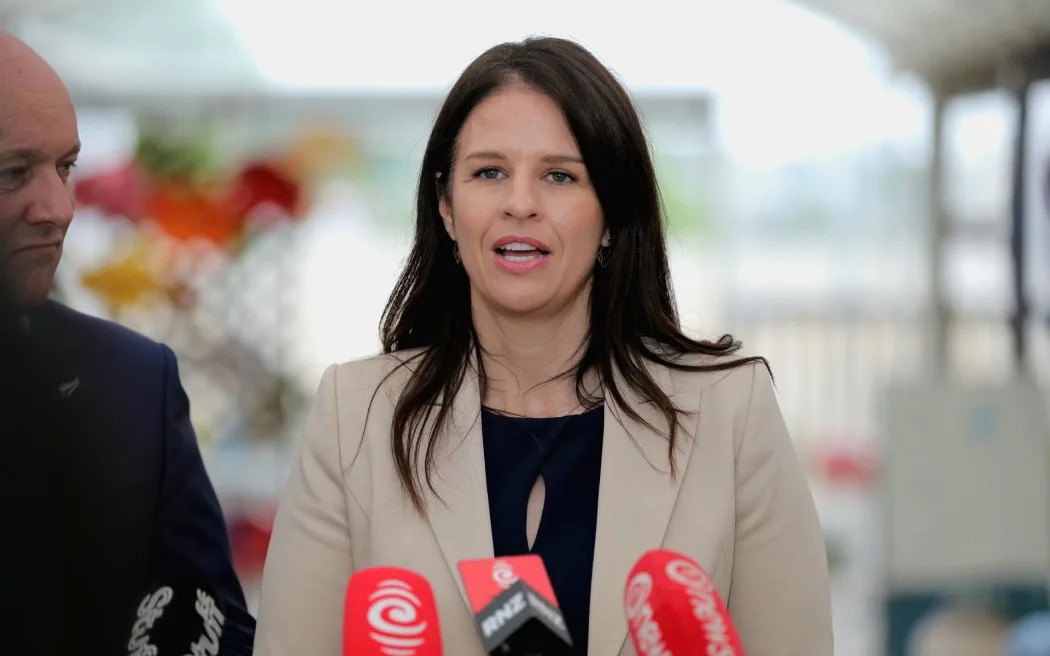Education Minister Erica Stanford. Photo: RNZ / Marika Khabazi
题图:教育部长 Erica Stanford。 摄影:RNZ / Marika Khabazi
The government is making changes to the Accredited Employer visa to make it easier for businesses to hire migrants.
【澳纽网编译】政府正在对认可雇主签证进行修改,以使企业更容易雇用移民。
[xyz-ihs snippet=”In-article-ads”]
Cabinet has also agreed in principle to bring in two new seasonal visas from late 2025.
内阁还原则上同意从 2025 年底开始引入两个新的季节性签证。
The AEWV changes taking effect from March include:
自 3 月起生效的 AEWV 变更包括:
- Removing the median wage threshold, so jobs will not need to pay the median wage or higher to be eligible for the visa
取消工资中位数门槛,因此工作不需要支付工资中位数或更高工资即可获得签证资格 - Reducing the minimum experience requirement for lower-skilled migrants to two years
将低技能移民的最低经验要求降低到两年 - Visas for new applicants in lower-skilled ANZCO level 4-5 roles will last three years, instead of two – aligning with the maximum continuous stay
ANZCO 4-5 级低技能职位的新申请人的签证有效期为三年,而不是两年 – 与最长连续逗留时间一致 - AEWV applicants will have work rights if applying for other work visas or students visas, to support them with employment while their visa is processed
如果申请其他工作签证或学生签证,AEWV 申请人将拥有工作权利,以便在签证处理期间支持他们的就业 - Employers will need to advertise with MSD and be able to demonstrate they considered New Zealanders in good faith, but this will be changed to a declaration-based model
雇主将需要在MSD上做广告,并能够证明他们真诚地考虑了新西兰人,但这将改为基于声明的模式。
- Income thresholds for AEWV holders to support a dependent child increase from $43,322 to $55,844
AEWV 持有人支持受抚养子女的收入门槛从 43,322 纽币增加到 55,844 纽币
- A re-design of the Job Check step of the AEWV process
重新设计了 AEWV 流程的 Job Check 步骤
Immigration Minister Erica Stanford revealed the changes in a statement on Tuesday morning, and said the changes – along with other tweaks already made to the scheme – would ensure the right balance of New Zealanders prioritised for job opportunities and providing a more fit-for-purpose visa scheme.
移民部长埃里卡·斯坦福 (Erica Stanford) 在周二上午的一份声明中透露了这些变化,并表示这些变化——以及已经对该计划进行的其他调整——将确保新西兰人优先考虑就业机会和提供更适合目的的签证计划之间的适当平衡。
“Our focus remains on attracting more higher-skilled workers while managing migration levels responsibly, so New Zealand has access to the skills we need to grow our economy. These changes will support a smarter, efficient and predictable immigration system.”
“我们的重点仍然是吸引更多高技能工人,同时负责任地管理移民水平,以便新西兰能够获得发展经济所需的技能。”这些变化将支持一个更智能、更高效和可预测的移民系统。
She said the previous government had used the median wage as an “artificial proxy for skill which did not work”.
她说,上届政府将工资中位数用作“不起作用的技能的人为代理”。
“Instead, it distorted wages and in some cases resulted in businesses paying migrant workers more than New Zealanders doing the same job. Other businesses had to increase prices to ensure pay equity across Kiwi and migrant workers.”
“相反,它扭曲了工资,在某些情况下导致企业支付给移民工人的工资高于从事相同工作的新西兰人。其他企业不得不提高价格,以确保新西兰工人和移民工人之间的薪酬公平。
The two new seasonal visas would provide a more “nuanced and flexible response” to the needs of businesses in some sectors and regions, and the current seasonal subcategory would be extended, she said.
她说,这两个新的季节性签证将针对某些行业和地区的企业需求提供更“细致和灵活的响应”,并且目前的季节性子类别将得到扩展。
来源:RNZ
[xyz-ihs snippet=”moreNZnews”]
[xyz-ihs snippet=”multiple-ads”]
3,396 views






